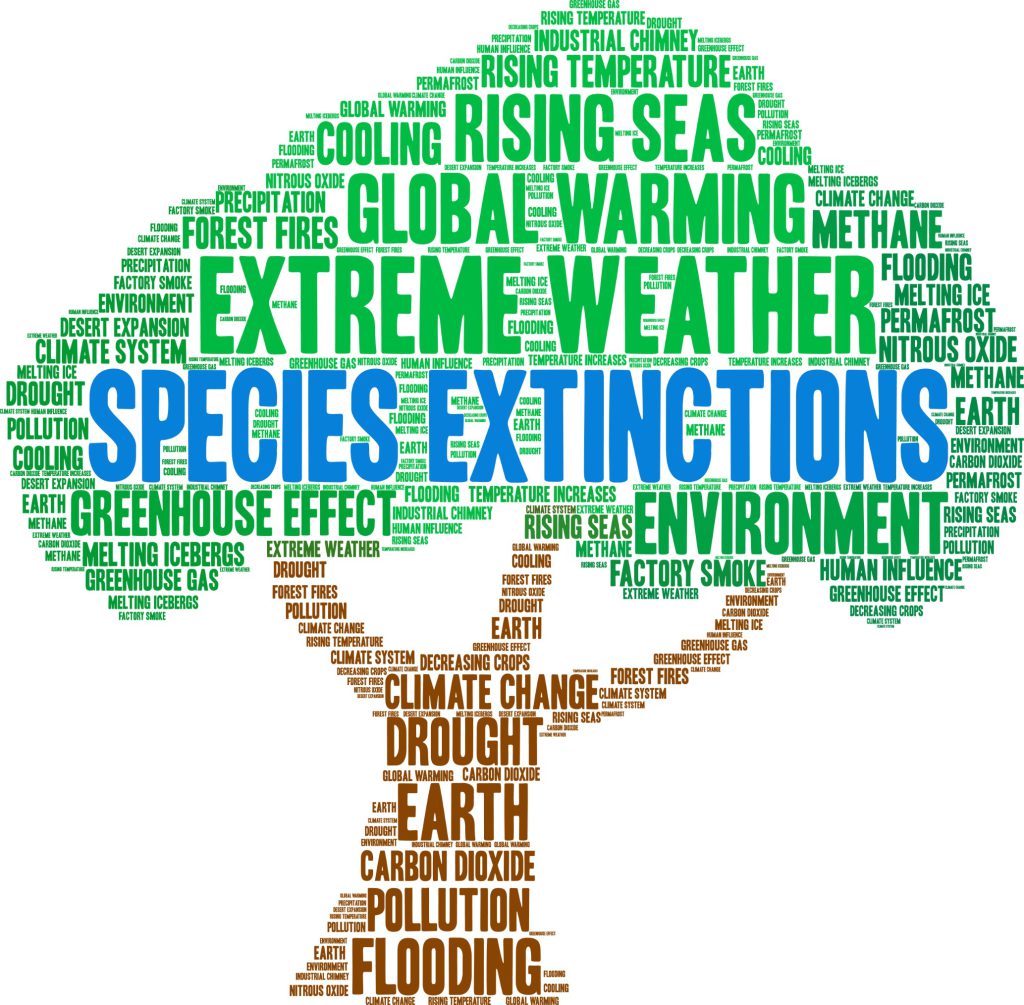
- This particular case study discusses how current human action may create changes in future weather patterns. Humans are burning fossil fuels at levels not previous experienced. This adds carbon dioxide to the atmosphere and it is predicted that this could lead to a warming of the planet, which will also be associated with altered climatic conditions. Therefore actions taken by humans today will impose costs on future generations because the climate change is predicted to result in a higher incidence of droughts, floods and bushfires. It may be harder for communities to grow and erratic weather patterns may result in the destruction of key infrastructure and housing. The lower living standards may therefore be a direct result of current generations decisions to consume fossil fuels excessive. This fits with our definition of a negative externality because consumption and production decisions by current generations impose costs on third parties.
- As stated in the case study, climate scientists predict that unfavourable weather conditions will be more prevalent in parts of the world. Australia, in particular is expected to experience more droughts and bushfires. These weather events have a negative disruptive effect on supply and reduce the ability of firms to respond top changes in demand. This means that it will be more difficult in key industries such as agriculture to increase production levels from one year to the next. Economic growth represents increases in the total volume of goods and services and given that, climate change may destroy crops or reduce the ability to grow food this might lead to lower growth rates.
- All people on the planet require a stable atmosphere. However, it is possible to use the atmosphere as a receptacle for human waste and every person on the planet can potentially pollute without having to pay. The problem with increased pollution is that each time more carbon dioxide is released into the atmosphere, the stability of the atmosphere is reduced for all other members of the planet. In this respect, the atmosphere is depletable (rival in consumption) and non-excludable.
- Following on from the response to 3 above, common access resources, like the atmosphere (or clean air), will tend to be overused because the atmosphere is jointly consumed and one person’s use of the atmosphere does not prevent another from enjoying those the same benefits. In addition, no one person or group owns ‘the atmosphere’ and it is therefore not possible to exclude non-payers from enjoying the benefits that the atmosphere provides. It is for these reasons that all common access resources will tend to be overconsumed or abused.
- Producers of fossil fuels are likely to suffer a dramatic reduction in their profitability if consumers and governments have a full, uncontestable understanding of the effects of burning fossil fuels. As it stands there is currently some doubt and a number of climate change sceptics who are able to steer the debate away from taking action. This is sometimes referred to as the spreading of misinformation by climate scientists, because the fossil fuel producers are being accused of deliberately trying to mislead the public and create uncertainty. They can then argue that it is not in Australia’s interests to take action on climate change, if the benefits cannot be guaranteed.
- Asymmetric information occurs because producers have more knowledge (than governments and consumers) about the precise inputs used in production and the potential damage it can cause to the environment or the planet. The fossil fuel lobby may employ the services of climate sceptics or otherwise simply attempt to obfuscate the true extent of the damage their activities cause to the environment. This might lead policy makers to underestimate the damage and/or the policy action needed to address the pollution, which in turn leads to decision making that is sub-optimal.
- In this case study, the consumption and production of fossil fuels is expected to be associated with a decrease in future economic growth rates and lower living standards for a wide range of people. Those who currently utilise fossil fuels do not take full account of the external costs that are created from their activities. This means that the market price is not able to reflect the cost to society. It could be argued that fossil fuel prices are therefore too cheap and this leads to excess demand and therefore resources are over allocated to the production and consumption of fossil fuels. This represents market failure because society’s wellbeing is not being maximised. In addition, inter-temporal efficiency is not being achieved because economic decisions being made in the current period are likely to result in lower living standards in the future.
- The Gillard Government introduced a price on carbon in 2012, which was subsequently repealed two years later by the Abbot Government. The initial price of $23 per tonne was imposed on the top 500 polluters and added to their cost of production. This was one step to internalize the external costs associated with burning fossil fuels. As the cost of production increases, the supply curve shifts to the left and this causes a shortage at the existing price. The higher price of fossil fuels leads to a contraction as consumers and producers look to reduce their usage and switch to cheaper alternatives. The over allocation of resources to the production of goods with negative externalities is reduced and the economy’s living standards are increased, promoting a more allocatively efficient allocation of resources.
